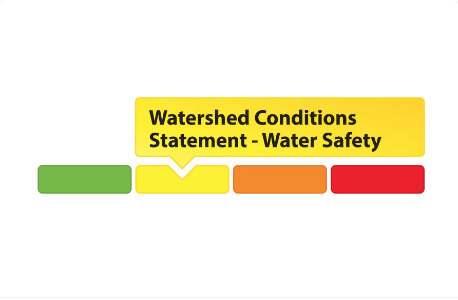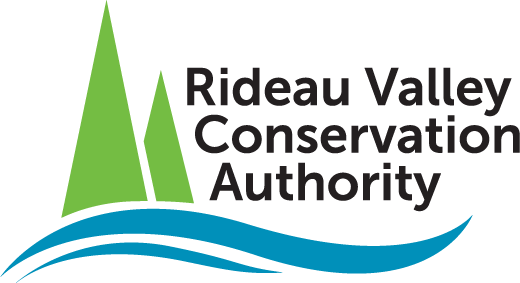(WCS – R01/2024) - The Rideau Valley Conservation Authority is issuing a WATER SAFETY message for the entire Rideau Valley Watershed due to the potential for localized ice jams which could cause sudden water level increases and flooding.
Following a period of warmer than usual temperatures and then a significant snowstorm, Environment Canada is forecasting cold temperatures, as low as -20°C overnight, for the next week with little precipitation. The forecast also indicates sustained winds are expected, which will cause wind chill temperatures. Many waterways are not yet frozen and with the onset of colder weather, there is a potential in localized areas for ice to form quickly, especially on water structures such as bridge abutments, piers, riverbanks, and channels. This could obstruct the flow of water and cause local water levels to rise. Any sudden water level increases may cause localized flooding. Parks Canada, which manages water levels for the Rideau Canal waterway, is also undertaking necessary dam operations in some areas which may increase the potential for rapid ice formation during this cold spell.
Residents are advised to stay away from all rivers and watercourses in the vicinity of any ice jams and high water areas. Parents are encouraged to explain these dangers to their children.
This watershed conditions statement is in effect until Thursday, January 25, 2024 at 5 PM and may be updated at that time unless the forecast or conditions change.

For more information, contact:
Manager, Engineering Services
613-692-3571 or 1-800-267-3504 ext. 1141
"Rideau Valley Conservation Authority is a partnership of municipalities within the Rideau Valley watershed created under the Conservation Authorities Act to deliver a range of programs in watershed management and natural resource conservation."
RVCA Watershed Conditions Statements:
Water Safety – High flows, unstable banks, melting ice or other factors that could be dangerous for recreational users such as anglers, canoeists, hikers, children, pets, etc. Flooding is not expected.
Flood Outlook – Early notice of the potential for flooding based on weather forecasts, calling for heavy rain, snow melt, high winds or other conditions that could lead to high runoff, cause ice jams and/or lakeshore flooding or erosion.
Flood Warning – Flooding is imminent or already occurring in specific watercourses or municipalities.
Flood Watch – Flooding is possible in specific watercourses or municipalities. Municipalities, emergency services and individuals in flood prone areas should prepare.


